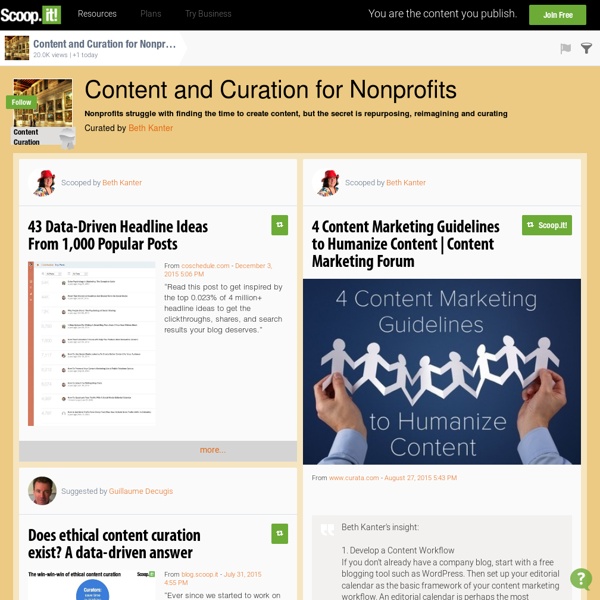



Collective consciousness Robert Scoble Augmented Collective Intelligence A researcher’s survival guide to information overload and curation tools Between constant email access through your smart phone and twitter conversations that pay no heed to boundaries of time or location, it’s easy to get lost in an online information overload. Mark Carrigan writes that curation tools are the only thing that can save a busy researcher’s sanity. Do you suffer from information overload? Curation is the broader concept behind Pinterest, by far the most famous of these tools, which was the subject of Deborah Lupton’s great article a few weeks ago. “draws upon the idea of older techniques of collage or scrapbooking: collecting interesting images, grouping them together under a theme and displaying them to others.” It allows the user to go round the internet, collecting images they find through the use of a convenient browser button (in a similar way to creating new browser bookmarks) and make these titled pinboards available online. While Pinterest is primarily focused on images, the others are, arguably, more versatile.
Démocratie participative Premium Curation Intro Sign Up Google+ Caution: “One Feed To Rule Them All” Premium Cash Generating Micro-Content Curation, Mass Publication and Syndication System. What if you could publish at the Speed of Thought? (Created by the team who brought you Theme Zoom, Krakken, Domain Web Studio The Last Keyword Tool, Network Empire and Google Plus Plus) Hello folks. My Name is Russell Wright and I am the co-inventor of the Theme Zoom Natural Language Processing (and market research) application, professional neuromarketer, and premium content curation consultant. This course reveals a system of curation and syndication used by myself and my team. It has virtually all the upsells and tools that might cost you any additional money REMOVED as a requirement to make this system work. 1. 2. 3. This course was in such demand from our members, that I have not even had time to put together a decent sales page. I have laid out the curriculum of this video course, so that you will know what to expect. Here is the basic curriculum:
Nemesis TV Compassion in Action Nouveaux paradigmes évolution ou révolution ? The True, good and Beautiful Buiding a better world Knowmads, Infocology of the future